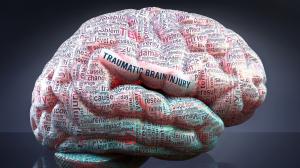
Post-TBI Symptom Management: Addressing Headaches, Mood Changes, and Mental Fatigue
Chris Rue, a board-certified Family Nurse Practitioner and founder of MOPE Clinic in Metairie, Louisiana, emphasizes the complexity of treating post-TBI symptoms and the need for ongoing evaluation.
“Post-concussive symptoms may linger for months or years after the initial injury. Each symptom must be addressed on its own terms, as they rarely respond to a one-size-fits-all approach,” said Rue.
Chronic Headaches: A Lingering Consequence of Brain Trauma
Headaches are one of the most frequently reported symptoms following a traumatic brain injury. These may resemble migraines, tension-type headaches, or pressure-like sensations that occur daily or episodically. In some cases, headaches begin immediately after the injury. In others, they may appear weeks later.
Post-TBI headaches are believed to stem from a combination of factors, including:
Physical trauma to the skull and brain tissues
Cervical spine injuries or muscular tension
Vascular changes and neuroinflammation
Disrupted neurotransmitter activity
Identifying the type of headache and its triggers is essential for treatment. Management may include medication, physical therapy, craniosacral therapy, or targeted injections. In some cases, non-pharmacologic approaches such as sleep regulation, hydration, and light exposure adjustments can offer relief.
Mood Disorders: Emotional and Behavioral Shifts After TBI
Mood changes are another common outcome following traumatic brain injury. These shifts may present as depression, anxiety, irritability, or emotional lability. Individuals may experience feelings of isolation, frustration, or unexplained sadness. These symptoms often stem from both physiological brain changes and psychological responses to life disruptions caused by the injury.
Mood disorders post-TBI can be influenced by:
Frontal lobe involvement impacting impulse control and emotion regulation
Sleep disturbances interfering with cognitive-emotional processing
Chronic pain or fatigue amplifying stress responses
Social and occupational withdrawal following functional limitations
Treatment of mood symptoms involves a multidisciplinary approach. This may include therapy with mental health professionals, pharmacologic support, behavioral interventions, and structured routines. Early recognition and intervention are key to preventing long-term psychiatric complications.
Cognitive Fatigue: A Common Barrier to Daily Functioning
Cognitive fatigue, often described as mental exhaustion, can be one of the most disabling effects of a TBI. Individuals may report difficulty concentrating, slower thinking, memory lapses, and reduced mental endurance. Unlike physical fatigue, cognitive fatigue may set in quickly—even after brief periods of reading, conversation, or screen use.
The underlying mechanisms of cognitive fatigue post-TBI include:
Reduced cerebral blood flow and metabolic activity
Neural inefficiency due to diffuse axonal injury
Overactivation of compensatory brain regions
Sleep disturbances affecting mental clarity and stamina
Effective treatment of cognitive fatigue focuses on energy conservation strategies, structured cognitive rehabilitation, environmental modifications, and sleep hygiene. In clinical settings, pacing techniques are often introduced to help individuals manage workloads and prevent overexertion. For those returning to school or employment, accommodations such as shorter workdays, scheduled breaks, and reduced task complexity may be necessary.
Coordinated, Long-Term Management
Post-TBI symptom management is rarely linear. Symptoms often fluctuate, overlap, or evolve over time. A coordinated, multidisciplinary approach involving neurology, mental health, physical therapy, occupational therapy, and primary care can help ensure that each symptom is addressed in the appropriate context.
Treatment plans are most effective when informed by:
Detailed symptom tracking
Neurocognitive assessments
Functional goals established with the patient and family
Regular reassessment to adjust strategies as recovery progresses
Education plays a central role in helping individuals and their support systems recognize and manage the variability of symptoms. Long-term recovery requires realistic timelines, flexibility in expectations, and continued access to support services.
Importance of Early and Ongoing Care
Delaying treatment of post-TBI symptoms may lead to worsening conditions or missed opportunities for neuroplastic recovery. Early intervention, clear documentation of symptoms, and consistent follow-up care improve the likelihood of regaining functional independence and reducing the burden of chronic impairments.
Post-TBI clinics and rehabilitation programs focused on symptom-specific care can assist in bridging the gap between emergency care and long-term management. Integrated care models allow patients to navigate medical, psychological, and rehabilitative needs under one coordinated plan.
Morgan Thomas
Rhino Digital, LLC
+1 504-875-5036
email us here
Visit us on social media:
Facebook
Distribution channels: Culture, Society & Lifestyle, Healthcare & Pharmaceuticals Industry
Legal Disclaimer:
EIN Presswire provides this news content "as is" without warranty of any kind. We do not accept any responsibility or liability for the accuracy, content, images, videos, licenses, completeness, legality, or reliability of the information contained in this article. If you have any complaints or copyright issues related to this article, kindly contact the author above.
Submit your press release

